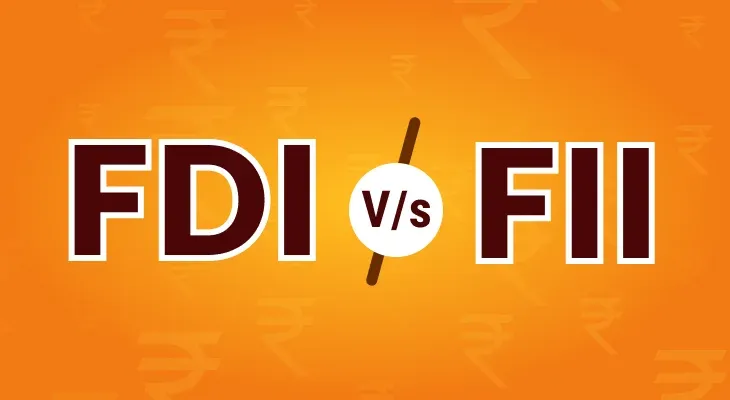
What is a Debenture? Meaning, Features & Types
Debentures are popular investment devices that have been developed to suit long-term investors. Debentures meaning translates to this being a debt instrument that has no backing/collateral. Debentures are backed up by the reputation and creditworthiness of the organisation issuing them. Furthermore, the issuance of debentures is conducted by governments and companies to raise funds. Simply put, debentures are a kind of loan provided by investors to any government body or company. In return for this, the issuing entity promises repayment of the principal sum along with regular payment of interest at rates that are fixed in advance.
Understanding Debentures
For investors, debentures' meaning becomes clear when you understand that organisations and government entities issue these to raise capital. Investors, in turn, get a relatively stable investment option. Besides this, government-issued debentures are seen as safe ways to invest plus get a steady income source.
To get into the finer details of “What are debentures?”, let’s grasp some aspects. A debenture is a certificate that the issuer provides an investor. Essentially, it is an agreement that a principal amount invested by an investor will be repaid at a particular date, and interest payments will be made at predetermined rates at certain periods while the principal is invested. Typically, interest is paid to investors once or twice annually. Under Section 2(30) of the Companies Act, 2013, debenture inventory, bonds, and other securities of any company are termed “debentures”.
Following the above, debentures, although equivalent to traditional bonds, are not guaranteed. They are considered unsecured debt instruments as there is no collateral against which they are issued. The issuer of the debentures has only their credit status that represents the criterion for investors to invest. Sometimes used interchangeably, bond and debentures meaning, in reality, is different. Bonds have the backing of assets or collateral, but debentures, typically, do not.
Key Features of a Debenture
Understanding some of the key features of debentures assists you in knowing the concept of debentures clearly. Here are key features:
Predetermined Date of Maturity: Debentures have a predetermined date of maturity. This indicates when the issuer is required to pay back the principal amount to the investor/holder of the debenture.
Interest Payouts: Debentures pay interest to debenture holders at fixed periods.
No Rights of Ownership: Although debenture holders may invest in the debenture issue (by giving their capital to the issuer and earning interest), they do not enjoy any ownership rights in the entity issuing them. Investors’ relationship with the issuer is simply that of a lender. This is one key way to differentiate debentures' meaning from that of shares/stock.
Secured or Unsecured Debentures: Debentures can exist as secured or unsecured. Debentures of the secured kind have the backing of the issuer’s assets. This provides some degree of collateral and safeguards against the principal of the investor, assuring interest payments. On the other hand, unsecured debentures are potentially risky as they have no collateral, but typically provide higher interest rates than secured debentures.
Various Kinds: Debentures come in different types, such as unregistered /registered, redeemable/irredeemable, and convertible/non-convertible. The particular kind of debenture has an influence on its terms and conditions, like redemption provisions, conversion rights, and rates of interest.
Transferable Nature: Investors are allowed to sell, transfer, or trade debentures. This means they are transferable to any other party in the secondary market. Boosting liquidity, this is a feature that permits investors an exit route.
Types of Debentures
Debenture holding can be a lucrative way to earn a stable income. Here are the types of debentures to opt for:
Convertible Debentures
Convertible debentures are kinds of debt investments that let holders convert debentures into equity (shares) of the issuing organisation within a particular period, letting the holder enjoy capital appreciation if the company’s stock rises in price.
Non-Convertible Debentures
Debentures that cannot be converted into equity stock are non-convertible debentures. They stay as fixed-income instruments for their entire tenure, offering fixed interest regularly so debenture holders get an income flow.
Registered Debentures
Registered debentures are issued to specific investors and the issuer keeps a record of issues and corresponding issuers in a register. These offer some level of protection as they can be tracked in case of theft or loss.
Unregistered Debentures
These are also “bearer debentures”, and no record of these individual debentures is kept, relating to debenture holders. As a result, they do not need a formal transfer of ownership and can be transferred easily. Furthermore, they are seamlessly traded in the secondary market.
Redeemable Debenture
Redeemable debentures have a particular date of maturity by which issuers must return the principal amount (at face value) to debenture holders. Debentures meaning, here, embodies the characteristic appeal of this financial instrument as investors gain interest at specific times and their principal on a particular date.
Irredeemable Debentures
Also referred to as perpetual debentures, these debentures do not have a predetermined date of maturity, and the issuer is under no obligation to deliver the principal. While investors do get regular interest payouts, the date of maturity is not specified.
Debentures vs. Shares: Key Differences
The purpose of issuing shares and debentures by companies is to raise funds for the companies in question. That said, there are pertinent differences between shares and debentures, as listed below:
Nature
Essentially, debentures are instruments of debt issued by organisations to raise capital. Debenture holders are creditors of the firm and claim interest and the principal. Debenture holders are merely lenders and do not have any ownership rights in the said company.
Shares are part of a company’s stock, and shareholders own a portion of the company when they hold shares. Furthermore, shareholders have voting rights and enjoy participation in the company’s profits through dividends.
Investment Returns
Debenture holders lend (invest) a principal amount to the company and earn regular fixed interest at specified intervals. The issuer of debentures also pays back the principal to the debenture holder at a particular maturity date. Thus, one way of knowing debentures' meaning is by the fact that the return on investment is predetermined in debentures.
In the case of shares, the return on investment is not predetermined and varies depending on the performance of the company and several other factors affecting stock prices. Returns may be delivered, sourced from company dividends and capital appreciation of the stock.
Returns and Risks
Debenture holders face less risk than shareholders as they earn fixed interest returns at preset periods, along with having the principal sum returned on the date of maturity.
With shareholders and stock holding, returns are not fixed or assured. Shareholders face risk as returns are based on stock prices and fluctuations of the market, besides other variables.
Debentures vs. Loans: What Sets Them Apart?
Since you can answer the question, “What are debentures?”, you can venture into how debentures differ from loans. Here are the key differences:
Debentures
Debentures are a kind of debt instrument that companies issue to raise funds.
Debentures are unsecured as they do not have any collateral or assets.
Debentures pay interest and the principal to debenture holders.
Debentures are issued to investors by firms, and investors turn into creditors of the said firms.
Debentures are usually employed for long-duration financing.
Loans
Loans are sums of money that are borrowed from lenders.
Loans require borrowers to repay loans with interest over a particular period.
Loans may be secured or unsecured. Secured loans have a backing of collateral, but for unsecured loans, there is no collateral required.
Financial institutions and banks provide loans to businesses and individuals.
Debentures vs. Bonds: Understanding the Differences
The concepts of debentures and bonds are used interchangeably, but there are specific differences. After you grasp debentures’ meaning and bond meaning, you will know the differences, as mentioned below:
Concept Definitions
Debentures are said to be unsecured instruments of debt. They are issued by (primarily private) firms to raise capital. Furthermore, they reflect borrowing that is long-term in nature, where the issuer pays periodic interest and the principal back to the investor at maturity.
Bonds make up securities of debt, but can be secured or unsecured. They are typically issued by government bodies, corporations, or municipalities. Bonds also repay investors the principal as well as periodic payments of interest.
Aspects of Conversion
Debentures hold no features of conversion and they cannot be converted into equity of the firm issuing them.
Some bonds are convertible and, under specific conditions, may be changed to equity.
Credit Ratings
Companies issuing debentures are subject to credit ratings and this affects interest rates applicable. Similarly, credit ratings are also applicable to entities issuing bonds, influencing their interest rates.
Rewards and Risks
Debentures are considered more risky than bonds, mainly those that are unsecure. The returns are typically fixed.
Bonds have different risk levels, based on variables such as the issuer’s creditworthiness. This affects interest rates. Furthermore, returns may be variable or fixed.
Advantages of Investing in Debentures
There are different types of debentures to opt for, depending on your financial goals. However, debentures come with general advantages, mentioned below:
Debenture holders gain a regular flow of income as fixed periodic interest. This also gives you stability against market volatility.
Secured debentures offer protection of the principal due to the backing of the issuers’ assets/collateral.
Debentures permit portfolio diversification over merely investing in equities.
You can trade debentures in the secondary market, adding a feature of liquidity in investments.
Disadvantages of Debentures
Debentures offer key perks, but certain features of debentures may have disadvantages, explained below:
Debentures may face the brunt of interest rate risk and credit risk.
Debenture holders have no rights of ownership over the company or voting rights in the said company.
Conclusion
To conclude, debentures are financial debt instruments that offer a range of options for businesses to raise capital while providing investors a chance to invest. As an investor, you have the choice of selecting debentures that may potentially be converted into company stock or those debentures that provide you with a source of fixed income. Whether a firm requires funding for expansion and development, or investors want steady sources of income, debentures prove to be a win-win for both. Before investors dive into the pool of debentures, they must be aware of the different kinds available and the risks involved, investing as per their unique financial goals.
FAQ
What is a debenture?
A debenture can be described as a long-term financial instrument in the category of debt investment instruments. It is issued by a company to raise capital. Debentures are issued to investors and are done so for a particular period of maturity. Investors who buy debentures earn interest on them till the maturity period ends. Investors can convert debentures to company stock at the end of the maturity period.
Why are debentures issued by a company?
Debentures are issued by firms and companies to raise capital for different reasons, like funding company expansion, debt refinancing, raising working capital, or research and development activities.
What are the different types of debentures?
The different types of debentures include convertible debentures, non-convertible debentures, registered debentures, unregistered debentures, redeemable debentures, irredeemable debentures, etc.


